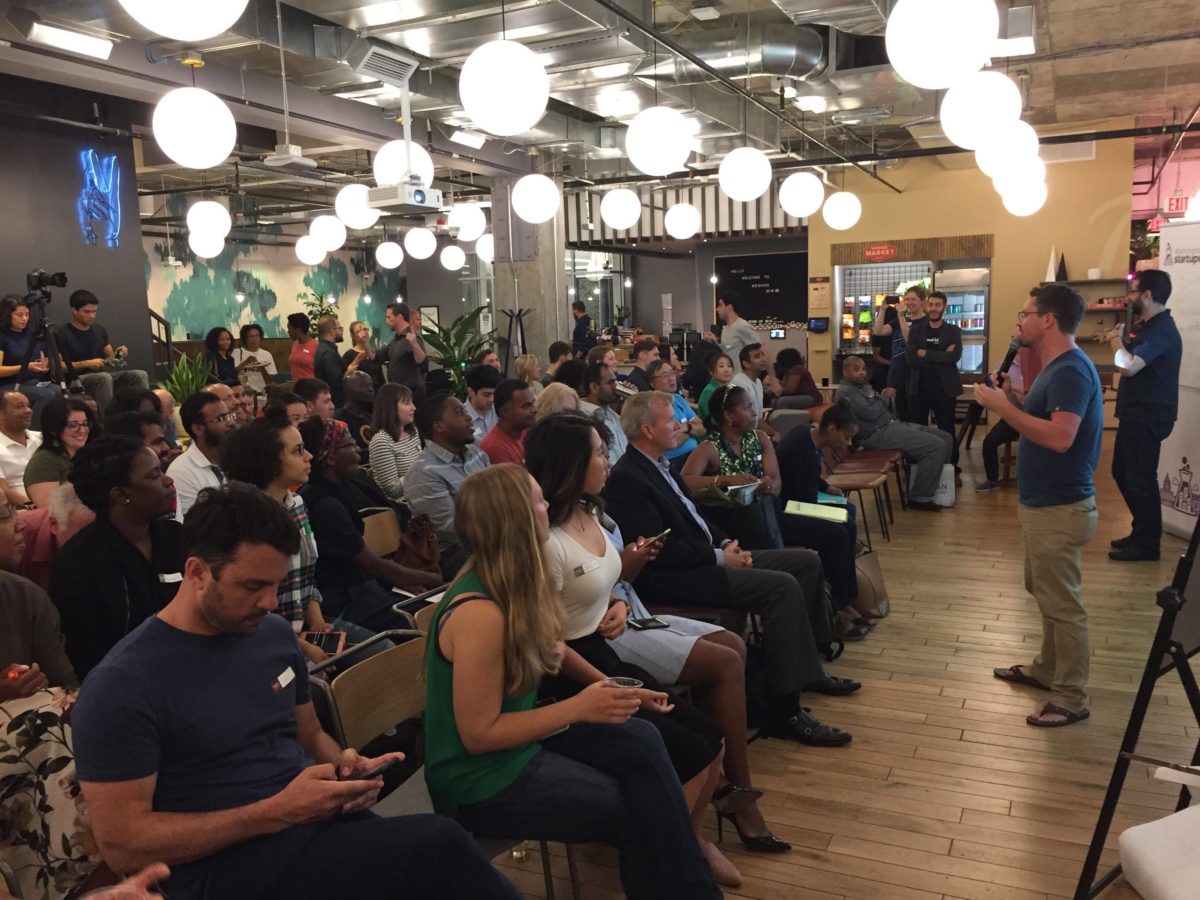There are famous immigrant founders and key figureheads at the center of many of the United States’ most successful startups — think Tesla’s Elon Musk, eBay’s Pierre Omidyar and Google’s Sergey Brin.
But the country has long been without a straightforward way for these company founders to stay in the U.S. to grow their businesses. Often, they go through alternative routes on a student, worker family or refugee visa.
Last month, the International Entrepreneur Rule (IER) that would allow immigrant founders to remain here was reintroduced by the Biden administration. The rule is for high-potential entrepreneurs who provide a “significant public benefits” to the U.S. It was introduced in Obama’s final days in office and promptly paused by the Trump administration.
Lawyers at Klasko Immigration Law Partners in Center City detailed the rule in the latest episode of their podcast, Statutes of Liberty. The move by the Biden administration is likely one aiming to foster economic development and job growth as the country recovers from the pandemic.
Attorneys Elise Fialkowski and Drew Zeltner speak with host William Stock, offering some insight into the program and who benefits. In order to qualify for the program, entrepreneurs need:
- At least a 10% stake in the company, which must have been formed in the U.S. within the last five years
- “Substantial and demonstrated potential for rapid business growth and job creation” aka either:
- A minimum $250,00o investment from established U.S. investors
- At least $100,000 from federal, state or local government grants and awards
- Other compelling evidence, like acceptance into a prominent accelerator
The IER allows foreign startup entrepreneurs to stay in the U.S. for up to five years. One to three people per company can stay an initial two-and-a-half years to build a business with demonstrated potential for growth. They can also get an extension over the same length of time if the business provides significant public benefit.
“Americans themselves are starting fewer businesses,” Kenan Fikri, director of research for the Economic Innovation Group (EIG) told Technical.ly last month. “The IER should help fill in some of the gaps to replenish the domestic innovation and job creation that startups power.”
The people most likely to participate in this program are startup founders and key startup employees, Zeltner said. Because of the 10% ownership needed to apply (and the 5% equity needed for a 2.5 year extension) these folks are likely the founders themselves or very early employees.
“They’re people with skin in the game,” he said.
Fialkowski said they often look to see if that person can qualify under another immigration status first, usually H-1B for specialty employment or E-2 for investors. But not every country qualifies for these, like India and China.
So why was the rule reintroduced? Likely to get the U.S. back to a similar economic place we were in when the rule was introduced in January 2017.
“I think there’s a recognition under the Biden administration that foreign nationals and entrepreneurs, particularly those who would really use this rule, heavily focused in STEM and tech, really are benefiting the U.S. economy creating businesses and creating jobs,” Fialkowski. said.
Hear the full conversion between Fialkowski, Zeltner and Stock below:
Join our growing Slack community
Join 5,000 tech professionals and entrepreneurs in our community Slack today!
Donate to the Journalism Fund
Your support powers our independent journalism. Unlike most business-media outlets, we don’t have a paywall. Instead, we count on your personal and organizational contributions.

Traditional PPE isn’t made for everyone. Here’s how one startup is fixing it.

Comcast introduces ultra-low lag Xfinity internet that boosts experiences with Meta, NVIDIA and Valve

This Canadian startup with a network of 100,000 is helping international college students find their careers


